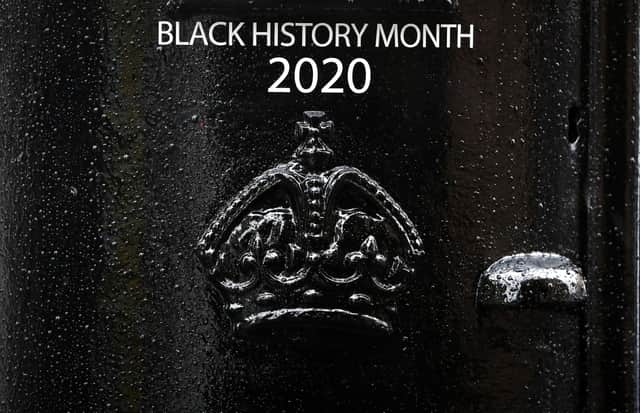CHILDLINE ADVICE: Talk to your child about racism during Black History Month


While we celebrate the influence and achievement of black people everywhere, we can also take time to reflect and help young people understand what racism is, and what they can do if they see it happening.
In 2019/20, Childline delivered 547 counselling sessions where racist bullying, racism or being bullied for spiritual, cultural or religious reasons were mentioned.
Advertisement
Hide AdAdvertisement
Hide AdOne young person wrote on the Childline message board: “It all happened at the start of year 6 when someone asked me if I had been burnt in the oven.”
Another added: “I still think about using cleaning bleach and hair dye to bleach my skin white.”
Racism and racial abuse or bullying can be really distressing for children and young people. When a child is bullied or treated differently because of their race, it can lead to feelings of isolation, depression, anger or even shame about their race or how they look.
That’s why it’s important to encourage positive and open conversations about race and racism with children and young people. Talking openly can also help a child to feel more comfortable sharing how they’re feeling with you, and to confide in you if they’ve experienced or seen racism or racial abuse.
Advertisement
Hide AdAdvertisement
Hide AdThis month is a great time to look back with your child over key moments in history, while also talking about contributions to culture that could help to diversify the books your children read and films or TV shows that they watch, and help them to recognise the diversity of characters in the content they enjoy.
Depending on their age you might want to help them understand what a hate crime is, and that it is illegal to treat someone unfairly because of their race, but that they can discuss any concerns with a trusted adult.
For further support, children can always use the moderated Childline message boards to talk with children who are experiencing similar things, and speak to a counsellor over the phone on 0800 1111 or online for advice.